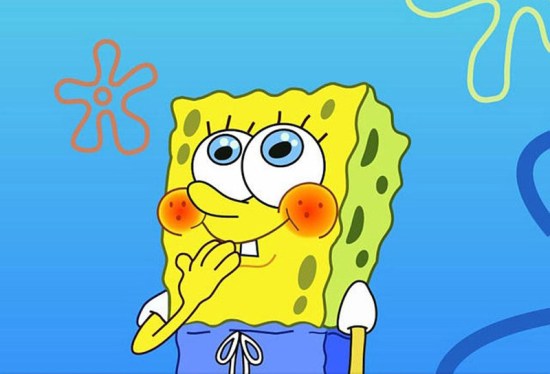Study: SpongeBob Causes Kids to Underperform at Cognitive Tasks in the Short Term
Who lives in a pineapple under a sea and apparently causes children to underperform at cognitive executive functions afterward? SpongeBob SquarePants! At least, that’s what research led by Angeline S. Lillard published in the journal Pediatrics seems to indicate.
In the study, 60 4-year-olds were randomly assigned a nine minute task. Some were allowed to draw and color freely, others were shown a slow-paced television cartoon from the Public Broadcasting educational lineup. The last group was shown nine minutes of a fast paced cartoon, which was apparently identified as “a very popular fantastical cartoon about an animated sponge that lives under the sea.” In their excellent report on the study, the Washington Post confirmed that the show in question was SpongeBob SquarePants.
Afterward, the experiment’s pint-sized subjects were asked to perform several tasks designed to measure their executive function, which are tasks associated with planning, self-control, and rule-learning. In this experiment, the researchers used the Tower of Hanoi test and a delay-of-gratification scenario. They found that the kids who watched SpongeBob performed noticeably worse than the other children in the study.
Now, before the moral panic sets in, let’s all just take a moment to think about this. Nowhere in the study do the researchers claim that SpongeBob is creating lasting problems, or even causing damage. This study focuses on the short term, and that only.
From my perspective, I don’t find the results scary or even that surprising. After watching a show that demands your attention with loud noises, fast-changing scenes, and anarchic hilarity, I probably would be extremely distracted and have difficulty concentrating. I can remember numerous occasions where upon exiting a particularly enthralling movie, feeling woozy or even intoxicated. I just about had a hangover after the first time I watched Inception. The researchers seem to provide some space for this in their study, saying that the “fantastical” elements of SpongeBob may have caused the lower performance in the experiment.
If anything, this study seems to prove that these shows are accomplishing their goals. The slower-paced educational shows aim to teach kids something, and they are focused afterward. SpongeBob aims to entertain, and afterward the kids are pretty wound up and wanted to think about SpongeBob and his undersea adventures instead of moving discs onto some pegs.
I’m neither a scientist nor a parent, so perhaps this study is more valuable than I am giving it credit for. I am, however, someone that grew up watching cartoons and has siblings a full decade younger than me. I have seen first-hand that there are not a lot of genuinely fun shows available for kids these days. While it may have some strange effects in this study, SpongeBob is one of the few cartoons on the air that delivers a vital part of childhood: Pure, unadulterated, joy. Hopefully, this won’t count against it too much.
(Pediatrics via Gizmodo, Washington Post)
Have a tip we should know? tips@themarysue.com
